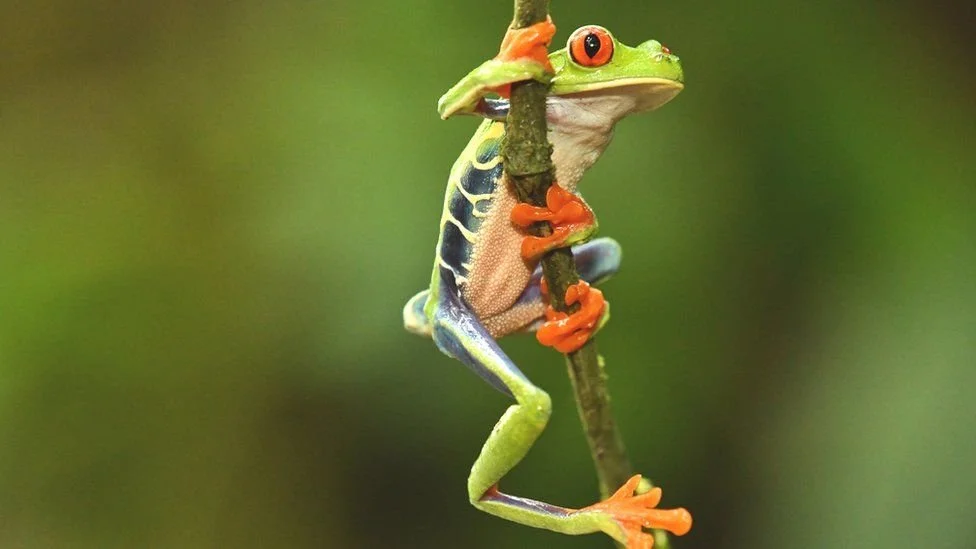Helen Briggs
A global agreement to reverse the loss of nature and halt extinctions is inching closer, as talks in Geneva enter their final day.
GETTY IMAGES I The vision is to live in harmony with nature by 2050
International negotiators are working on the text of a UN framework to safeguard nature ahead of a high-level summit in China later this year.
Observers have slammed the "snail's pace" of negotiations and are pressing for a strengthening of ambitions.
Divisions remain, including over financing the plans.
"The science is very clear, we do not have any more time to waste; we need to take action now," Bernadette Fischler Hooper, head of international advocacy at WWF-UK, told BBC News.
"Not only on biodiversity loss, but also on climate change which is a very inter-linked issue. So that is what's at stake here; it's actually the future of the planet and its people."
The final version of the draft UN Convention on Biological Diversity (CBD) will be negotiated in Kunming, China, at the Cop15 summit, which is expected to take place at the end of August.
GETTY IMAGES I The plans call for a fifth of degraded marine ecosystems to be restored
The outcome will decide for the coming decades how the world will address the challenges of reducing the extinction risk threatening more than one million species, protecting 30% of land and sea, eliminating billions of dollars of environmentally-damaging government subsidies and restoring degraded ecosystems.
Talks aimed at progressing the nascent agreement have been taking place in Geneva over the past two weeks.
After the first week, observers hit out at what they saw as a "glacial" rate of progress, but momentum has gathered during the final days, although "thorny issues" remain, including the financing of the plans.
The draft text contains the aim to increase finance to at least US $200bn a year by 2030, with funding from developed to developing countries to increase by at least US $10bn a year.
"Resource mobilisation at this meeting has become a thorny issue," Ghanaian academic Alfred Oteng-Yeboah, who has played a key role in international efforts to protect biodiversity, told the news agency, AFP.
On subsidies, the aim is to "redirect, reallocate, reform or eliminate incentives harmful for biodiversity" on the scale of at least US $500bn per year.
RUSS MITTERMEIER I The vast majority of lemur species, unique primates found only in Madagascar, are on the brink of extinction
The new Global Biodiversity Framework (GBD) is seen as the biodiversity equivalent of the Paris climate agreement. Biodiversity refers to all the different living things on Earth and how they fit together in a delicate web of life that we rely on for food, clean air and water.
One of the key ambitions is to turn 30% of Earth's lands and seas into protected areas by 2030. A recent UN climate report underlined the importance of conserving at least 30% of the planet to achieve biodiversity and climate goals.
Another goal is to ensure that, by 2050, a "shared vision of living in harmony with nature is fulfilled".
"We have this one goal, which is to bend the curve on biodiversity loss and really to build that shared future to live in harmony with nature in the long term," the convention's executive secretary, Elizabeth Maruma Mrema, told reporters at the start of the talks.
Scientists have issued repeated warnings about threats to nature driven by human actions, including chopping down forests and turning natural land over to farming.
A landmark 2019 assessment warned that nature was declining globally at rates unprecedented in human history, with up to one million species facing extinction.
The Cop15 conference in Kunming is expected to take place almost two years later than originally planned due to repeated delays caused by the Covid pandemic.
This has left the world without targets over the course of this decade for halting extinctions and reversing the worldwide loss of nature.



